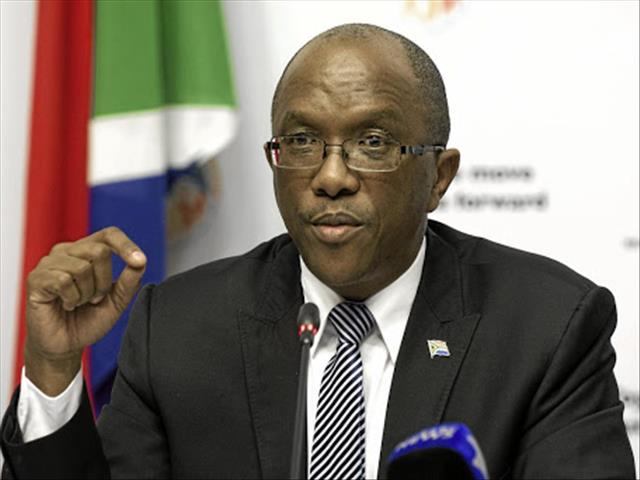Riyaz Patel
Auditor General Kimi Makwetu says more bailouts might be needed for South Africa’s under pressure state-owned enterprises, saying the results represent “the worst audit outcomes for SOEs ever.”
The Auditor General of South Africa (AGSA) was releasing the national and provincial government’s audit results for the 2018-19 financial year in Cape Town.
Makwetu’s office audited a total of 770 national and provincial departments and entities and 14 state-owned enterprises.
“None of the SOEs managed to obtain a clean audit opinion, with the South African Post Office slipping back to a qualified audit opinion and the Development Bank of Southern Africa regressing from a clean audit in 2017-18 to a financially unqualified opinion with findings in the year under review,” he said.
The actual report is more emphatic: “The overall audit outcomes of the SOEs are the worst they have ever been.”
The audit results for the 2018-19 financial year indicate serious weaknesses in the financial management of national and provincial government departments that had not been addressed over the past five years.
He said irregular expenditure increased to R62.60 billion from the R52 billion reported last year.
Unauthorised expenditure was high at R1.365 billion.
“The financial health of auditees continued to deteriorate – with departments in particular struggling to balance their finances. Unauthorised expenditure remained high at R1.365 billion.”
He said the audited SOEs continued to regress from the previous year.
“The overall audit outcomes of the SOEs regressed when compared to the previous year and significantly regressed over the last five years. Confidence in the ability of the executives tasked to manage the affairs of SOEs has similarly regressed over the past years,” reads the dismal report.
“These entities also disclosed R1.4 billion in irregular expenditure, although the amount could be even higher as four SOEs – Denel, the South African Broadcasting Corporation, South African Express Airways and the South African Forestry Company – were qualified on the completeness of their irregular expenditure disclosure,” the “disappointing” report by the Auditor General said further.
The irregular expenditure of the SOE’s Makwetu’s office did not audit amounted to R57 billion – which included R49.9 billion at Transnet and R6.6 billion at Eskom.
Of further concern, Makwetu’s report states: “There was an emerging risk of increased litigation and claims against departments. Over a third of the departments had claims against them in excess of 10% of their next year’s budget.”
A total deficit of R62.06 billion was incurred by the 31% of public entities whose expenditure exceeded their revenue – 90% of the total deficit related to the Road Accident Fund.
“Fruitless and wasteful expenditure continued to rise, with 223 auditees losing R849 million in the current year. Over the five-year period, R4.16 billion of government expenditure was fruitless and wasteful. Irregular expenditure increased to R62.60 billion from the R51 billion reported last year,” the grim report said.

“Turnaround plans initiated almost on an annual basis had almost no impact in restoring the SOE environment, as executive and management instability makes it impossible to hold those responsible accountable.
“We found the discipline of sustained monitoring and oversight of key controls to be extremely weak at most SOE’s,” Makwetu said.
The AG said this “undesirable state of deteriorating audit outcomes shows that various local government role players have been slow in implementing, and in many instances even disregarded, the audit office’s recommendations.”
As a result, the he said, “the accountability for financial and performance management continues to worsen in most municipalities.”
“Only 100 (26%) of the auditees managed to produce quality financial statements and performance reports and to comply with key legislation, thereby receiving a clean audit. In 2014-15, 106 auditees had clean audits,” the report said.
Makwetu called on government leaders to take urgent action to halt the trend, restore accountability and prevent the mismanagement of public funds.

